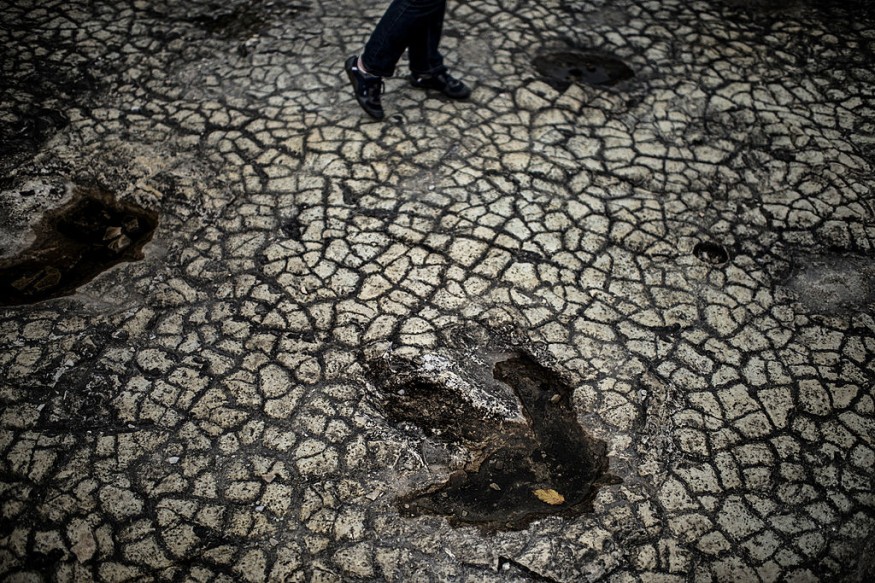A new discovery from Russia involves a dinosaur that existed 68 million years ago. According to the study, the creature's fossil had a broken wrist due to an injury it incurred when it was still living.
The dinosaur, known as the Amurosaurus riabinini, belongs in a plant-eating dinosaur group called hadrosaurs. They feature long-beak similar to ducks and have a body size that ranges from three to 20 meters in length.
Wrist of Hadrosaur Amurosaurus riabinini

In the study, experts theorized that the wrist injury of the Amurosaurus riabinini results from its common behavior when in search of water and sustenance.
The Amurosaurus riabinini, according to the paper, did survive an accident from running and jumping across terrains. However, the damage might have been the reason to prevent the dinosaur from escaping predators and eventually led to its demise, DailyMail reports.
The study on Amurosaurus riabinini led scholars from Queen's University Belfast. The team, led by the institute's School of Natural and Built Environment expert Filippo Bertozzo, examined a piece of the dinosaur's bone excavated from a quarry located in Russia's eastern city Blagoveshchensk.
Bertozzo explained that the broken piece of bone investigation led them to conclude that it was a part of a hadrosaur, specifically of the Amurosaurus riabinini.
Researchers discover bone of 'majestic' 68-million-year-old dinosaur with broken wrist
— GB News (@GBNEWS) March 2, 2022
Subscribe to the GB News YouTube channel https://t.co/gx4btIcPZFhttps://t.co/NZJP3b3FrB
The expert continued that the accident might have occurred when the animal was roaming around its territory, most likely while jumping and running in search of food.
The authors noted that the wrist of the dinosaur showed signs of healing, which implies that the Amurosaurus riabinini did not die immediately after its accident. But Bertozzo added that the injury is likely the cause of the creature's death.
Being a four-legged animal, the Amurosaurus riabinini probably experienced difficulty moving, increasing the chance of the dinosaur being captured by coexisting predators.
Accidents Happen to Dinosaurs
The bone of the Amurosaurus riabinini was imaged through a CT scan for the authors to get a closer look at its fractures. The results show that the piece was indeed healing, but the damage caused the malunion of two fragments of the wrist bone.
School of Natural and Built Environment deputy head and author of the study Eileen Murphy explained that the study on injuries and diseases of prehistoric creatures and early humans is essential to get ahold of information to study ancient individuals and their lives.
The recent investigation showcases how an animal from a different period experienced an injury that led to its death, reminding our knowledge that prehistoric creatures such as dinosaurs can also encounter accidents, Murphy added.
According to the authors, records of dinosaur fossils show bone fractures as a common injury preserved through time. The damage often results in deep lesions, bone misalignments, and even infections that risk the survival of the animals.
The study was published in the journal Historical Biology, titled "A pathological ulna of Amurosaurus riabinini from the Upper Cretaceous of Far Eastern Russia."
Check out more news and information on Paleontology in Science Times.












